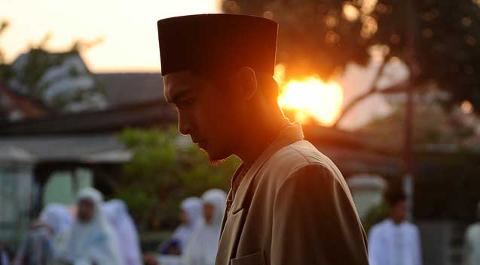Nearly 30 years ago, being Muslim in Melbourne meant quietly gathering in the living rooms of apartments for a moment of prayer or having to explain what sounded like a foreign, exotic religion to strangers.
There were no masjids — worship centers — for children to learn Arabic or shops like those found in urban centers to buy specially prepared meats and foods. But today, there are at least three worship centers across the Space Coast, from Melbourne to Merritt Island, with nearly 4,100 Islamic adherents and a growing visibility for the faith in schools and at work.
“I enjoy living in Brevard County,” said Sheikh Ahmad, a poet and charity organizer who moved from Pakistan to Pennsylvania in 1977. “When I first came here 13 years ago, there wasn’t much, there was not a lot for the Muslim community. But now you see a lot more — we have the mosque in Melbourne and a lot of students.
Ahmad moved to Brevard with his family in June 2001, just months before the Sept. 11 terrorist attacks.
“We are a nice community of believers. You can’t let one or two people move you to judge the entire religion,” he said.
This weekend, Ahmad and the county’s Muslims began celebrating Ramadan, a month of fasting from food and water during the daytime hours, with prayers for Islamic unity, nightly dinners for the community and readings of Quran as revealed to Prophet Muhammad nearly 1,400 years ago. The fasting — ended nightly with a traditional helping of dates and buttermilk — is one of the five pillars of Islam that make up a Muslim’s spiritual life, including praying five times a day and making a pilgrimage to the city of Mecca in Saudi Arabia at least once in a person’s lifetime.
The celebration also comes as demographic research shows that Islam is now the second most practiced, non-Christian religious tradition in the United States and in Florida, according to the Association of Statisticians of American Religious Bodies, a group that conducts surveys of the nation’s religious groups every 10 years. The faith is the second most practiced in 20 states, including Florida, while Judaism follows Christianity in the northeast corridor, the research shows.
“It wouldn’t surprise me, because religious diversity has been growing in the U.S. for a long time,” said Ken Wald, a political science professor at the University of Florida. Wald points out that Muslims in America are themselves a diverse group made up of African-Americans, southeast Asians along with those from the Middle East.
“My sense is that as Americans become more familiar with Muslims, that will likely help to diminish negative feelings,” Wald said.
Muzaffar Shaikh, a spokesman for the Islamic Society of Brevard mosque in south Melbourne, said the Muslim community continues to grow spiritually, economically and in outreach. More Americans are also familiar with the culture of Muslims from places like the Middle East, from the hijab coverings worn by some women to the distinctive sound of the call of prayer or Azan heard at the mosques during prayer time.
He also said news that Islam is the state’s second most practiced faith tradition is not surprising. “Of course it is pleasant news, but in the Muslim community, it’s been very well known.”
“We’ve expanded the mosque three times. It is even so full, especially with students from Florida Tech, that we have prayers in the parking lot. We also get converts, and we’re seeing a greater and greater number of people interested in the message of Islam,” Shaikh said.
The largest gatherings typically take place on the Jummah, a community gathering on Friday, the Muslim sabbath.
Today, Shaikh points out, Muslim students readily receive excused absences for festivals that fall during the school year. During Ramadan, which this year falls mostly in July, most Muslim workers are finding it easier to navigate work and religious obligations. Employers have become more understanding over the years, Shaikh said.
Restaurants such as Taste of India in Melbourne and Alexandria Grill in Suntree and several groceries offer halal, ritually slaughtered meats marketed to Brevard’s Muslim community. Many of those diners will be filled each night during the next month as Muslims gather to break the fast. In addition, the community also gives to local charities, such as Daily Bread.
“We tend to practice our faith and consider it as a way of life,” said Shaikh, who meets occassionaly with interfaith leaders and other groups to explain the meaning of Islam in a post-9-1-1 world.
“There’s a lot more awareness and that’s a good thing.”
By the numbers
A selection of denominational traditions in Brevard and their practitioners
- 64,800: Roman Catholic
- 26,500: Southern Baptist Convention
- 518: Reform Judaism
- 5,100: Church of Jesus Christ of Latter-day Saints
- 4,100: Muslim
Compiled by the Association of Statisticians of American Religious Bodies
Source: FloridaToday










